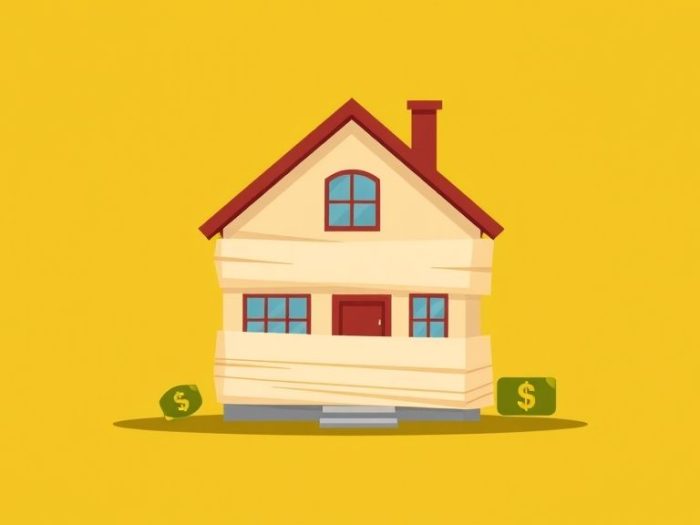Turnkey rental properties offer a seemingly attractive option for real estate investors: properties that are fully renovated and ready to rent, often with property management in place. However, they frequently come with a premium price tag. This article will explore turnkey rental properties, analyzing their pros and cons, cost considerations, and whether they’re a worthwhile investment compared to other real estate strategies.
Understanding Turnkey Rental Properties
Turnkey rental properties are properties that have been fully renovated and are ready for tenants to move in. They are typically sold by companies that specialize in acquiring, renovating, and managing these properties. The appeal is the “hands-off” nature of the investment.
Key Characteristics of Turnkey Rental Properties
-
Fully Renovated: Properties are typically updated with new paint, flooring, appliances, and sometimes even structural improvements.
-
Tenant-Ready: Often come with tenants already in place, providing immediate cash flow.
-
Property Management: Many turnkey companies offer property management services, handling tenant screening, rent collection, and maintenance.
-
Premium Price: Turnkey properties are generally priced higher than properties requiring renovation.
Benefits of Turnkey Rental Properties
-
Passive Income: Offer a more passive investment experience, especially with property management in place.
-
Convenience: Save time and effort on finding properties, renovations, and tenant acquisition.
-
Out-of-State Investing: Enable investors to invest in markets they may not be familiar with.
-
Immediate Cash Flow: Properties with tenants in place can provide immediate income.
Drawbacks of Turnkey Rental Properties
-
Higher Purchase Price: The premium price tag can reduce potential returns.
-
Limited Control: Investors may have less control over renovations and tenant selection.
-
Potential for Overvaluation: Properties may be overpriced, especially in hot markets.
-
Property Management Fees: Ongoing fees for property management can impact profitability.
Cost Considerations
When evaluating turnkey rental properties, consider these cost factors:
-
Purchase Price: Compare the price to similar properties in the area.
-
Property Management Fees: Understand the fee structure and what services are included.
-
Financing Costs: Factor in mortgage payments, interest rates, and loan terms.
-
Operating Expenses: Estimate property taxes, insurance, and potential maintenance costs.
-
Vacancy Rate: Consider the potential for vacancy and its impact on income.
Are Turnkey Rental Properties Worth the Premium?
Whether turnkey rental properties are “worth it” depends on your individual investment goals, risk tolerance, and time constraints:
-
Turnkey Properties May Be Worth It If:
-
You prioritize passive income and convenience.
-
You are an out-of-state investor unfamiliar with the local market.
-
You value immediate cash flow.
-
You have limited time to dedicate to property management.
-
-
Turnkey Properties May Not Be Worth It If:
-
You prioritize maximizing returns and have the time and expertise for renovations and property management.
-
You want more control over renovations and tenant selection.
-
You are an experienced investor comfortable with managing all aspects of the investment process.
-
Conclusion
Turnkey rental properties offer a convenient and passive way to invest in real estate, but they come with a premium price. Carefully weigh the benefits and drawbacks, considering your individual circumstances and investment goals. Thorough research, due diligence, and a realistic assessment of costs are essential. This information is for educational purposes only and should not be considered financial advice. Always consult with a qualified real estate professional before making any investment decisions.
Related Keywords
Turnkey rental properties, turnkey investing, passive income real estate, rental property investment, real estate investment, property management, real estate, investing, rental property analysis.
Frequently Asked Questions (FAQ)
1. What are turnkey rental properties?
Turnkey rental properties are fully renovated properties that are ready for tenants to move in. They are typically sold by companies that specialize in acquiring, renovating, and managing them.
2. What are the key characteristics of turnkey rentals?
Key characteristics include being fully renovated, tenant-ready (sometimes with tenants already in place), often offering property management, and having a premium price.
3. What are the benefits of investing in turnkey rental properties?
Benefits include passive income potential, convenience, the ability to invest out-of-state, and immediate cash flow (if tenants are already in place).
4. What are the drawbacks of turnkey rental properties?
Drawbacks include a higher purchase price, limited control over renovations and tenant selection, the potential for overvaluation, and ongoing property management fees.
5. What cost factors should I consider when evaluating turnkey properties?
Cost factors to consider include the purchase price, property management fees, financing costs, operating expenses, and potential vacancy rates.
6. When might turnkey properties be a good investment?
Turnkey properties may be a good investment if you prioritize passive income and convenience, are an out-of-state investor, value immediate cash flow, or have limited time for property management.
7. When might turnkey properties not be a good investment?
Turnkey properties may not be a good investment if you prioritize maximizing returns, have the time and expertise for renovations and property management, or want more control over the investment process.
8. Do turnkey properties guarantee higher returns than other real estate investments?
No, turnkey properties do not guarantee higher returns. Their profitability depends on factors like purchase price, operating expenses, and market conditions.
9. Should I rely solely on the turnkey company’s valuation of the property?
No, it’s essential to conduct your own research and compare the property’s price to similar properties in the area to avoid overvaluation.
10. Is turnkey real estate investing truly passive?
While turnkey properties offer a more passive experience, some level of involvement is still required, such as reviewing financial reports and communicating with the property manager.



